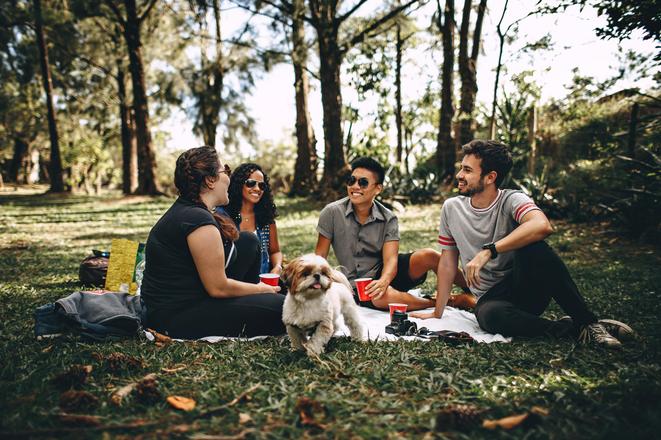The Na Slovensku Aj Po Anglicky podcast, with the support of Fjúžn, is continuing its series on the migrant experience in Slovakia with a new episode. This time we are talking about the friends that foreigners leave behind in their home countries and the friends that are made in Slovakia.
Friends are the keepers of our secrets, dispensers of advice and encouragement, and the shoulders on which we cry. Friendships give our lives colour when the world seems grey. That is why they are an integral part of not only the human experience but the migrant experience as well.
Unfortunately, the story of friendship for most migrants must start with saying goodbye to long-held friendships. These may be friends made in childhood or early adulthood. They are the people who were present during important and formative periods in the lives of migrants. So, it makes it all the more difficult to say goodbye.
Maintaining these friendships while they are away from home is often more difficult than it appears. Migrants are not home for major life events, such as marriages, deaths, or severe illnesses. This can exaggerate the feelings of separation and distance. However, friendships that are deep, long-lasting, and built on an acceptance and understanding of a wandering lifestyle can endure despite these challenges.
Yunus, who is from Turkey, was unable to meet his childhood friends for five years while he awaited the approval of his asylum application. As soon as he was allowed, he rushed to meet his old pals in Brussels. "Almost nothing had changed." "We were such close friends," the young Turkish student said of their meeting.
Starting Over
Whenever migrants arrive in Slovakia, they all start from zero when it comes to friendship. The path to finding new friends in Slovakia is somewhat similar to that of their home country. A person's age, marital and child status, and personality type all factor into how easily they make friends. Of course, migrants must also contend with a new environment, language barriers, and cultural differences.
As Liudmyla from Ukraine puts it, "foreigners, overall, are more lonely." This leads many to turn to other foreigners, often from their home countries, for companionship. These new friends have similar goals and interests, like traveling to parts of Slovakia that may be uninteresting for Slovaks. They may also be free from family obligations on weekends and holidays. Other foreigners have a shared understanding of their experiences and difficulties.
Kamarát/ka...?
Alas, these friendships with other foreigners are often brief due to a roaming lifestyle or changing employment. If migrants want longer-lasting friendships and a greater sense of belonging in the community, they must turn to Slovaks. As is to be expected, there are language and cultural hurdles to overcome. Slovaks have established networks of friends and family that may find it challenging to welcome a foreigner.
Certainly, this does not mean friendship with Slovaks is impossible, quite the contrary. Migrants make unexpected connections with Slovaks. These can be as ordinary as a favourite sports team or rock band or as complex as a shared understanding of persecution at the hands of an oppressive regime.
Nevertheless, the question remains if these migrants can ever build the kinds of friendships, full of shared experiences and a common culture, they enjoyed back home. Each of these guests had thoughtful answers that show the optimism and resilience most migrants bring to the country. This is what drives migrants to continue to take chances and look for opportunities to make connections. In these divisive times, everyone stands to benefit from more friendship.
Guests: Mark Taylor, Yunus, Navid, and Liudmyla Krivosheya.


 Friendships give our lives colour when the world seems grey. (source: Pexels)
Friendships give our lives colour when the world seems grey. (source: Pexels)